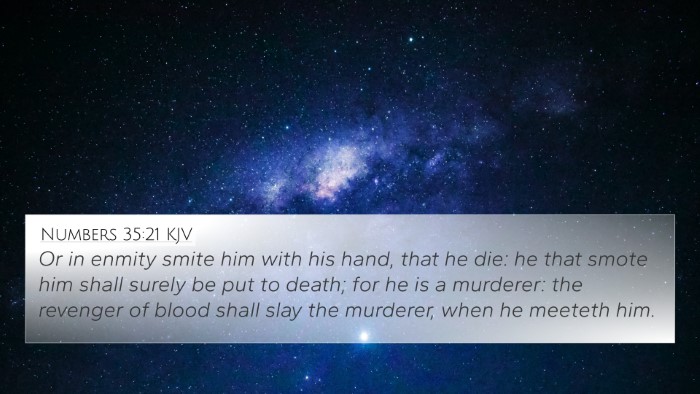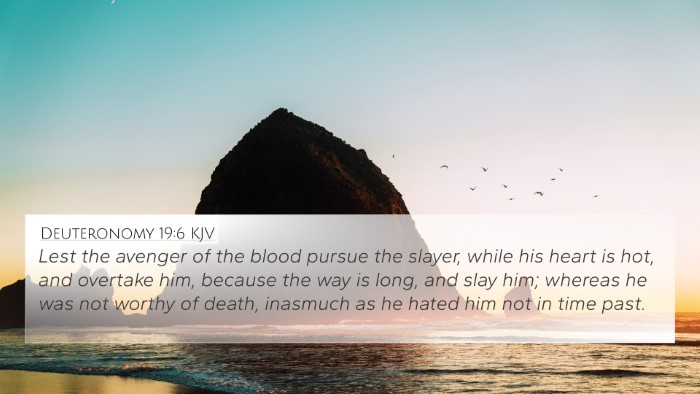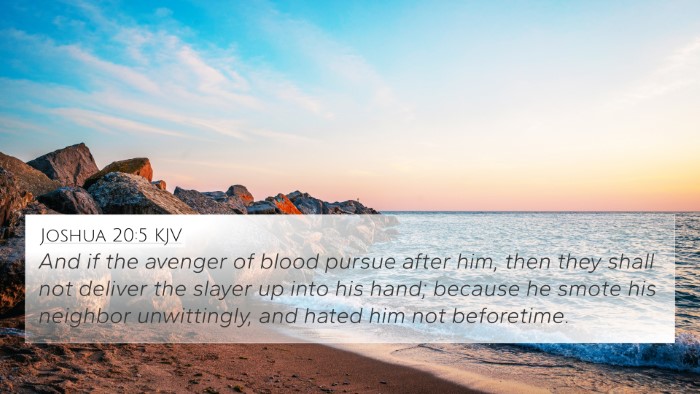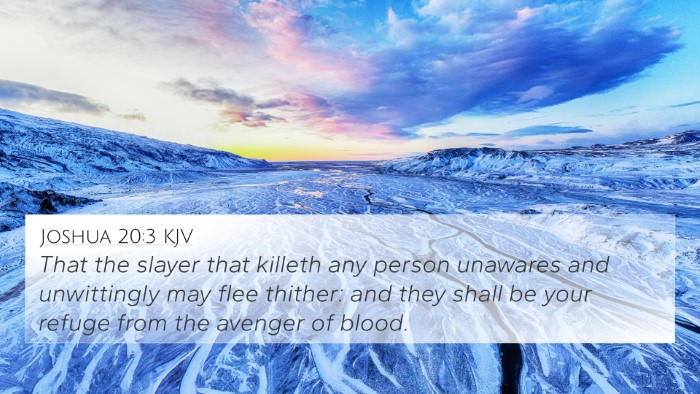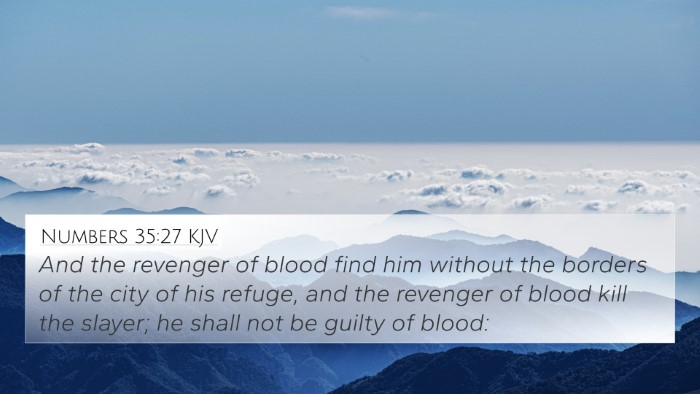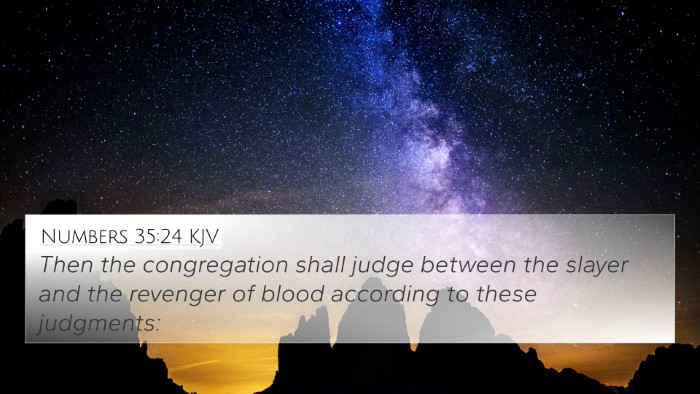Understanding Numbers 35:19
In Numbers 35:19, the scripture addresses the concept of justice and retribution within the community of Israel. The verse states, "The avenger of blood himself shall slay the murderer: when he meeteth him, he shall slay him." This verse underlines the seriousness of murder and the corresponding duty of the avenger of blood to act in retribution. Below, we will explore various interpretations and analyses of this verse based on public domain commentaries by respected scholars such as Matthew Henry, Albert Barnes, and Adam Clarke.
Context and Significance
This verse comes from a section of the book of Numbers where God is giving Moses various laws meant to govern the Israelite community. It reflects the seriousness of taking a life and the responsibilities that follow such an act.
Matthew Henry Commentary
Matthew Henry emphasizes the legal and moral obligations that come with murder. He points out that the avenger of blood, usually a close relative, has the right and duty to seek retribution for the slain. This reflects an understanding of justice, where the community takes responsibility for maintaining order and ensuring that wrongful acts do not go unpunished.
Albert Barnes Commentary
Albert Barnes adds that this system serves as a deterrent against murder and promotes a sense of accountability within the society. He explains that the point of the law is not just punishment but also a call for community vigilance. The avenger's obligation signifies the deep connections and responsibilities that bond families and clans.
Adam Clarke Commentary
Adam Clarke focuses on the cultural and historical aspects of the verse. He notes that the role of the avenger of blood was not merely a personal vendetta, but a sanctioned act carried out under the authority of the law. Clarke suggests that this regulation aimed to deter acts of violence and maintain integrity in societal relations.
Thematic Bible Verse Connections
This verse can be connected to several others throughout the Bible that discuss themes of justice, vengeance, and the sanctity of life. Below are some relevant verses for deeper understanding:
- Exodus 21:12 - "He that smiteth a man, so that he die, shall be surely put to death." This highlights the severe consequences of murder.
- Deuteronomy 19:11-12 - Discusses the obligation of the avenger of blood in cases of murder.
- Matthew 5:21-22 - Jesus' teaching on anger and murder underscores the spiritual implications of taking a life.
- Romans 13:4 - "For he is the minister of God to thee for good: but if thou do that which is evil, be afraid; for he beareth not the sword in vain." This verse connects civil authority with God's justice.
- Galatians 6:7 - "Be not deceived; God is not mocked: for whatsoever a man soweth, that shall he also reap." This speaks to the inevitable consequence of one's actions.
- Leviticus 24:17 - "And he that killeth any man shall surely be put to death." Further emphasizes capital punishment for murderers.
- Hebrews 9:22 - "And almost all things are by the law purged with blood; and without shedding of blood is no remission." This connects to the sacrificial aspect of justice.
Inter-Biblical Dialogue
The connections between these scriptures demonstrate a consistent biblical theme regarding justice and accountability. In studying Numbers 35:19, one gains greater insight into both the cultural context of ancient Israel and the timeless principles that govern moral conduct. Thus, the notion of blood vengeance in this verse finds resonance throughout Scripture.
Tools for Bible Cross-Referencing
To better understand the connections between various Bible verses, utilizing tools for cross-referencing can be invaluable. Here are some resources:
- Bible Concordance: Helps locate specific verses and themes throughout the Bible.
- Cross-Reference Bible Study Guides: Offers structured methods for exploring related scriptures.
- Cross-Referencing Bible Study Methods: Techniques for understanding the linkage and thematic overlap between verses.
- Bible Chain References: Connects verses thematically for deeper study.
- Comprehensive Bible Cross-Reference Materials: Extensive resources for in-depth study.
Conclusion
Understanding Numbers 35:19 in light of its context, historical significance, and thematic connections provides a profound insight into biblical justice. By engaging in comparative Bible verse analysis and employing tools for cross-referencing, readers can enrich their study and application of fundamental biblical teachings.



